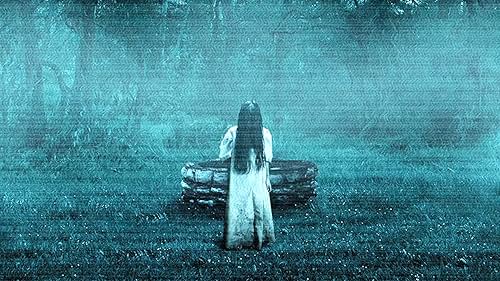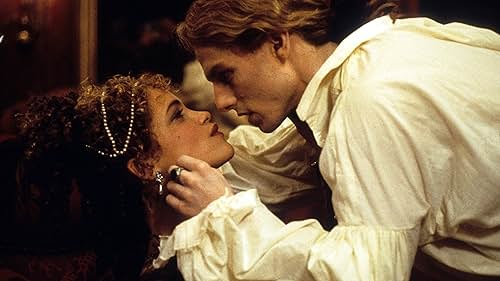Transylvanian vampire Count Dracula bends a naive real estate agent to his will, then takes up residence at a London estate where he sleeps in his coffin by day and searches for potential vi... Read allTransylvanian vampire Count Dracula bends a naive real estate agent to his will, then takes up residence at a London estate where he sleeps in his coffin by day and searches for potential victims by night.Transylvanian vampire Count Dracula bends a naive real estate agent to his will, then takes up residence at a London estate where he sleeps in his coffin by day and searches for potential victims by night.
- Awards
- 5 wins & 3 nominations total
Charles K. Gerrard
- Martin
- (as Charles Gerrard)
Anna Bakacs
- Innkeeper's Daughter
- (uncredited)
Bunny Beatty
- Flower Girl
- (uncredited)
Nicholas Bela
- Coach Passenger
- (uncredited)
Daisy Belmore
- Coach Passenger
- (uncredited)
William A. Boardway
- Concertgoer Outside Theatre
- (uncredited)
Barbara Bozoky
- Innkeeper's Wife
- (uncredited)
Tod Browning
- Harbormaster
- (voice)
- (uncredited)
Moon Carroll
- Maid
- (uncredited)
Geraldine Dvorak
- Dracula's Wife
- (uncredited)
Featured reviews
Bela Lugosi forever captures the role of a certain undead Transylvanian count who takes a trip to London in the first legitimate version of the classic Bram Stoker novel. Despite many attempts by many talented film makers, I believe this version, directed by Tod Browning, remains the definitive take on the often-filmed novel. But why? Is it simply nostalgia? Granted, I do fondly remember staying up late as a child watching this film on Ghost Host theater and finding myself suitably frightened. However, if I were the same age today, would I find the film as effective? Would a steady diet of more modern and explicit horror films made me too jaded to enjoy the more subtle charms of this film? I hope not, but I could see how it might. The film is slow, and its slowness is further emphasized by the absence of an under score. It is stagey - being as it was more influenced by the stage play than the novel itself. Also, the story plays itself out too quickly. Van Helsing manages to figure everything out and dispatch the count in about two seconds. There simply isn't much suspense - and even less gore or violence. Yet it remains the champ. Why? The main reason is Lugosi himself. He gives the performance of a lifetime. He truly inhabits the role and is genuinely creepy. The rest of the cast, particularly Edward Van Sloan as Van Helsing and Dwight Frye as Renfield, support him admirably. However, when I watch the old Universal horror films nowadays, I find myself really enjoying the atmospheric sets and lighting. Yes, there is still much to love about Dracula today. (As long as you avoid the optional Philip Glass score on the DVD!)
This is the movie that set the horror genre into action. Sure there may be a few campy scenes that look like they might be out of some high school play production (the rubber bats and armadillos in Dracula's castle come to mind), but there is an unmistakable suspense and eerieness about the film. If you are lucky enough to find the DVD reissue from 1999, you have three great versions: the original 1931 version with basically no background music, the 1999 rescoring of the movie by composer Philip Glass, and the extremely interesting Spanish version, made at the same time as the original (with totally different actors). If you have this DVD, watch the movie twice: once with no soundtrack and once with the Glass rescoring.... totally different movie. Glass' score is great, but it doesn't really help the movie at all (it actually hurts it in many cases). But the utter silence in Browning's original just makes my skin crawl! The acting is actually quite great (Lugosi is, of course, phenomenal as is Dwight Frye as Renfield). The fear, the suspense, and, believe it or not, the sexuality, combines for a great movie that was an unbelievable success in its first release ($700,000 in it first US release, $1.2 million worldwide). Not bad for a movie made 72 years ago!
It's almost impossible not to love 'Dracula', a horror milestone that is the most important and influential vampire movie ever made. Bela Lugosi became a cinematic legend after this movie, and his portrayal of Dracula basically invented the modern vampire as we know it. Murnau's silent classic 'Nosferatu' was an obvious influence on Todd Browning, but while Browning was no James Whale (the innovative British director who made 'Frankenstein' for Universal a few months after this) he added a lot of his own style and ideas to the project, and Counts Orloff and Dracula are completely different kinds of creatures. Lugosi made his Count sophisticated, attractive and sexy, and this is what made this movie such a sensation at the time, and what helps make it still a wonderful viewing experience. Lugosi's performance is one of the greatest in horror history. Some of the other actors in the cast are a bit shaky but Edward Van Sloan as Van Hesling is excellent and Dwight Frye's Renfield (a different character from the book) is also memorable. Both actors would reappear in 'Frankenstein'. 'Dracula' is an important landmark horror movie, but even better, is still a fantastic viewing experience seventy years later. Don't just watch it because it's a classic, watch it because it's wonderful entertainment!
"I bid you welcome," "I never drink wine," "Children of the night...what music they make," and of course "I am Dracula" are memorable lines that resonate throughout horror films, literature, art, etc... throughout the 20th century because of a landmark film made in 1931 starring Bela Lugosi and directed by Tom Browning. This film was the birth of the horror film as we know it. Its importance can not be underestimated. Dracula is a wonderful film for so many reasons, but first let's look at its many faults.
The film is by today standards very antiquated. It has almost no soundtrack, stage acting for the most part, limited special effects, and a slow pacing. It has long parts of little action and lots of chat. It shows little while leaving much to one's imagination(a plus for those like myself that are good at envisioning what is not shown). With all this not going for it, why is Dracula such a classic? Why is it considered to be such a great film and a great horror film?
The answer is that even with all these flaws (and bear in mind some of these flaws are not flaws for all) the film offers a rich story in an eerie, atmospheric way. Bela Lugosi was Dracula. He was the model for oh so many vampires to come. His gesturing, his deliberation in speech, his facial movements all created a vampire never to be forgotten. Despite Lugosi, however, is the real genius of the film....Tod Browning. Browning created a movie and a setting hitherto imagined and conjured on a screen. Browning was the man behind the camera that created the cob-webbed stairs of the Dracula castle and the squalid emptiness of the crypt. He created the ghoulish female vampires thirsting for blood. Dracula is not just a film to see, it is film history and should be viewed with that in mind and not put under a microscope of today's languishing tastes.
The film is by today standards very antiquated. It has almost no soundtrack, stage acting for the most part, limited special effects, and a slow pacing. It has long parts of little action and lots of chat. It shows little while leaving much to one's imagination(a plus for those like myself that are good at envisioning what is not shown). With all this not going for it, why is Dracula such a classic? Why is it considered to be such a great film and a great horror film?
The answer is that even with all these flaws (and bear in mind some of these flaws are not flaws for all) the film offers a rich story in an eerie, atmospheric way. Bela Lugosi was Dracula. He was the model for oh so many vampires to come. His gesturing, his deliberation in speech, his facial movements all created a vampire never to be forgotten. Despite Lugosi, however, is the real genius of the film....Tod Browning. Browning created a movie and a setting hitherto imagined and conjured on a screen. Browning was the man behind the camera that created the cob-webbed stairs of the Dracula castle and the squalid emptiness of the crypt. He created the ghoulish female vampires thirsting for blood. Dracula is not just a film to see, it is film history and should be viewed with that in mind and not put under a microscope of today's languishing tastes.
Dracula is a figure that is known by virtually all and can be credited in large part to this 1931 classic. Bela Lugosi who plays Count Dracula is horrifyingly creepy and finding a better Dracula would be nearly impossible. From the first encounter between Renfield and Dracula to the closing scene, the audience is on the edge of their seats and don't know what to expect, which is an essential part of most horror movies. I was a big fan of this film not only because it is an American classic but because it is a true horror film. In my opinion, too often in horror films today, the story itself isn't scary at all. The experience of going to the movie theatre with a huge screen and incredibly loud speakers help scare audiences by having things pop out when you are least expecting it. I believe that anyone can make a movie like that and is completely insignificant. The story behind Dracula is truly creepy and horrifying. A great story like this makes this one of the most significant horror films in history.
Did you know
- TriviaGenerally regarded as the film that kickstarted the horror genre in Hollywood.
- GoofsIn the scene where Van Helsing is attempting to catch Dracula's lack of reflection in a mirror, there are visible chalk marks on the floor showing Bela Lugosi where to stand for the shot.
- Quotes
Count Dracula: This is very old wine. I hope you will like it.
Renfield: Aren't you drinking?
Count Dracula: I never drink... wine.
- Crazy creditsThe original title card has producer Carl Laemmle, Jr. identified as Presient (sic).
- Alternate versionsA version of the film played on the 10/24/15 airing of Svengoolie (1995) featured a soundtrack taken from the French language audio track on the Dracula Blu-ray.
- ConnectionsAlternate-language version of Drácula (1931)
- SoundtracksSwan Lake, Op.20
(1877) (uncredited)
Music by Pyotr Ilyich Tchaikovsky
Excerpt Played during the opening credits
Details
- Release date
- Country of origin
- Official site
- Languages
- Also known as
- Drácula
- Filming locations
- Production company
- See more company credits at IMDbPro
Box office
- Budget
- $355,000 (estimated)
- Gross worldwide
- $89,078
- Runtime
- 1h 15m(75 min)
- Aspect ratio
- 1.20 : 1(original release)
Contribute to this page
Suggest an edit or add missing content









































